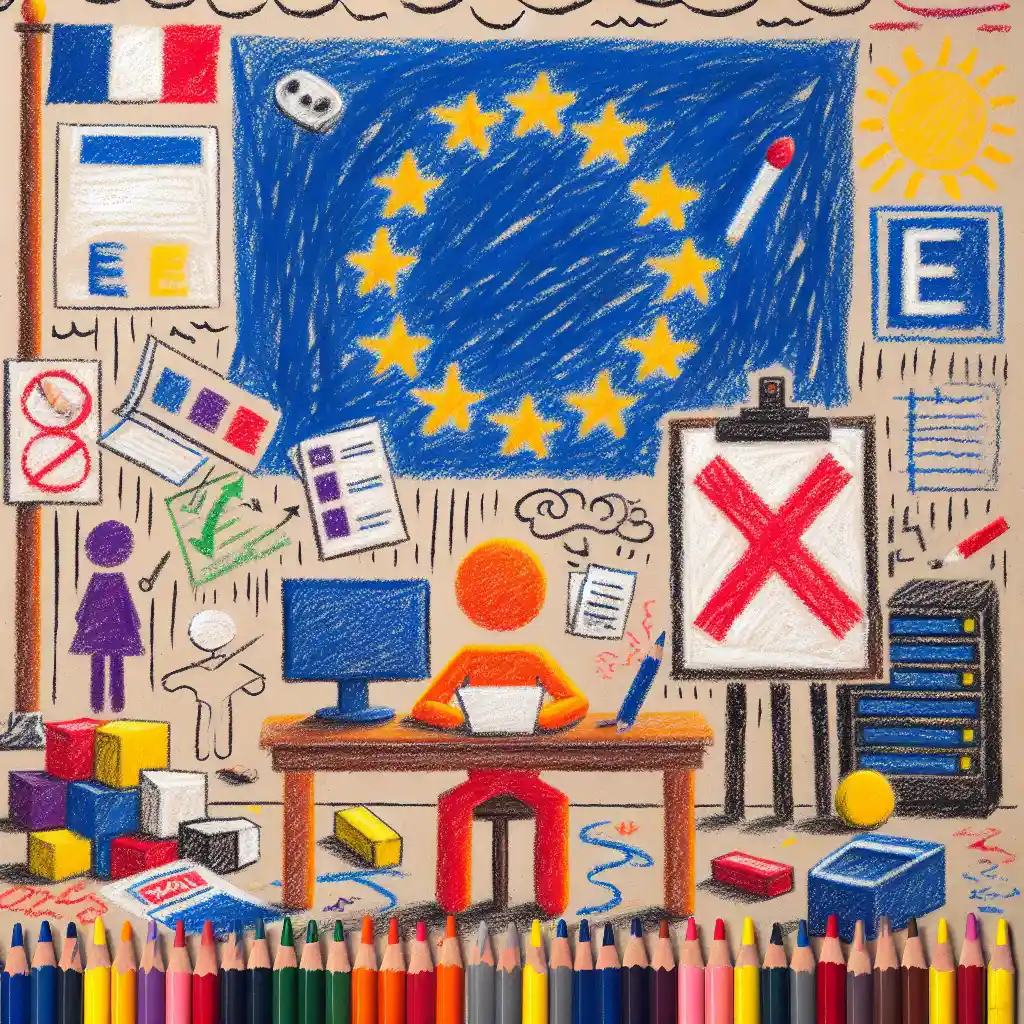Europe is scaling back its landmark privacy and AI laws

Explain Like I'm 5
Imagine you have a big, strong box where you keep all your favorite toys safe, and you're the only one who knows the secret code to open it. Now, imagine if someone said, "Hey, it’s okay to let others peek inside your box if they really need to." That's kind of what’s happening in Europe with rules about keeping people’s information (like names and favorite ice cream flavors) private. Europe had some of the toughest rules — like a super-duper strong box — but now they’re saying, "Maybe it’s okay to loosen up a bit." They're also being a bit more relaxed about rules for smart robots that can do things like play chess or suggest which video to watch next.
Explain Like I'm 10
Europe used to have some of the strictest rules in the world about how companies can use people’s personal info, kind of like having a really strict teacher who makes sure everyone plays fair. These rules are called GDPR, and they help make sure that when you go online, companies can’t just take your info like your name and where you live without asking you nicely first. They also had tough rules about Artificial Intelligence (AI), which is a fancy way of saying computers that can think and learn like humans.
But now, Europe is thinking about making these rules a bit less strict. Why? Well, big companies and even the US government told Europe that these rules are too hard to follow and it’s making it tough for them to make cool new stuff or do their work properly. Europe listened and is now changing some things, like making those annoying "Accept Cookies" pop-ups on websites simpler, so you don't have to click as much. They’re also being less strict about AI, maybe delaying some rules, so companies can develop new tech without too many hurdles.
Explain Like I'm 15
For years, Europe has been like a trendsetter in making tough rules for privacy and AI technology. The General Data Protection Regulation, or GDPR, set high standards globally about how companies should treat private information. Think of it as Europe leading a global trend on respecting personal space, but in the digital world. These laws were like a blueprint others followed, emphasizing user consent and transparency.
Now, though, Europe is reassessing and rolling back some of these stringent regulations. This shift comes under heavy lobbying from big tech companies and even the US government. These groups argue that the stringent regulations stifle innovation and make it difficult for businesses to operate efficiently across borders. For instance, simplifying the GDPR’s cookie permission pop-ups aims to make browsing less cumbersome for users and less regulated for companies.
On the AI front, Europe’s pioneering AI Act is seeing some watering down and delays. The goal here seems to be to balance innovation with regulation. While it’s important to regulate AI to prevent misuse and address ethical concerns, too much regulation might slow down the advancement of beneficial technologies.
This scaling back raises questions about the future of digital rights and the global influence of European regulatory frameworks. Will other regions follow suit and relax their regulations, or will they see this as a chance to differentiate themselves by maintaining stricter controls? This change could reshuffle the global tech landscape, affecting everything from startups to giant tech companies.
Want to read the original story?
View Original Source